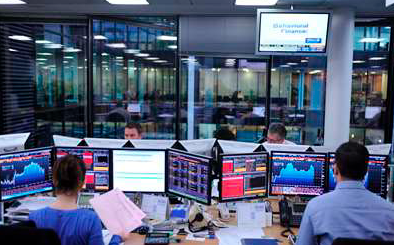Baillie Gifford’s £3.3 billion Monks Investment Trust plc said on Friday the fund’s net asset value (NAV) total return was 55.5% for the year to April 30, 2021, compared to a total return of 33.9% for the FTSE World Index.
The Monks share price total return for the same period was 53.1%.
The Edinburgh fund’s top performing stocks included Tesla, Sea Limited, Farfetch, Meituan Dianping, Trupanion, Zillow Group, Amazon, Shopify and Alphabet.
A single final dividend of 2p is being recommended, compared to 2.5p last year.
This is the minimum required to maintain the company’s investment trust status, reflecting its priority which is capital growth.
Over the period, 12.9 million shares were issued at a premium to NAV — 5.8% of the company’s share capital — raising over £168 million.
The closed-end fund’s share price ended the year at a 2.8% premium to NAV.
“The last 12 months have been exceptional for stock markets, with May 2020 coinciding with the early stages of a very strong recovery from the bottom of the pandemic sell-off,” wrote Monks’ managers Spencer Adair and Malcolm MacColl in their report to shareholders.
“Of the top ten positive contributors to performance, in sterling terms, two rose four-fold (Tesla and Sea Limited), one rose three-fold (Farfetch) and three more rose two-fold (Meituan Dianping, Trupanion and Zillow Group).
“The top ten also featured established winners, Alibaba (through SoftBank), Amazon, Shopify and Alphabet.
“The portfolio has prospered from owning these stocks and many others which are beneficiaries of commerce moving online.
“We think the move from bricks and mortar to digital will take many years so many of these companies are still in the early stages of penetrating vast new markets.
“For example, ecommerce in the US rose from 11% before the pandemic to 16% currently but will not level out until it is 50-60% so can grow at strong rates for many years.
“Tesla is an exceptional company with a maverick leader.
“It was the most significant contributor to 12-month performance as it continued its march to dominance in the automobile world.
“Despite factory shutdowns during the pandemic, the company increased production by over 30% to 500,000 vehicles.
“It will soon have capacity to manufacture 1.5 million vehicles in California, Berlin and Shanghai and it is building a plant in Texas that will be the main production location for the Tesla Semi (truck) and Cybertruck (pickup).
“Whilst traditional auto makers are now producing electric vehicles at scale, we think Tesla’s technology lead is very significant and there are interesting options around solar power and autonomous driving where Tesla also has a leading edge.
“The consistent theme in the remainder of the top ten positive contributors is the move online.
“As noted, these are a combination of established ecommerce companies (Amazon, Shopify, Alphabet, Alibaba via SoftBank) as well as companies in niche or emerging areas of virtual consumption.
“Sea Limited is a gaming, ecommerce and payments company operating in South East Asia.
“Sea has backing from Tencent which operates similar platforms in China and in which we have invested for over a decade through Naspers.
“Luxury goods companies have traditionally been cautious about selling products through online portals but the pandemic may have changed that as many of their traditional distribution routes (airport duty free, travel) have been closed.
“A beneficiary of this trend has been British-Portuguese portal, Farfetch which has quickly established itself as the online luxury shopping destination.
“The top contributors are rounded off by China’s largest food-delivery and local services company Meituan Dianping, a company that provides medical insurance for pets in Trupanion and another US company which is disrupting the domestic property market – Zillow.
“It is worth commenting upon SoftBank. This is a Japanese holding company run by a maverick who rivals Tesla’s Mr Musk.
“We commented upon the purchase of SoftBank in last year’s report at which point we had just taken an initial position when SoftBank was trading at around a 50% discount to its net asset value.
“Its leader, Masayoshi Son may have struck one of the greatest deals in history when he paid US$20 million for a 30% stake in Alibaba in 1999.
“At the time of our own purchase of SoftBank last year, we sold down some of the stake in Alibaba to buy the SoftBank position.
“This trade has worked well as the discount to net asset value for SoftBank has narrowed considerably whilst at the same time Alibaba has suffered from regulatory concerns and the cancellation of the valuable Ant Financial IPO.
“Monks also holds a small stake in Ant Financial which continues to be private. Towards the end of the year, we trimmed the position in SoftBank, having seen the share price almost double in just over 12 months.”
